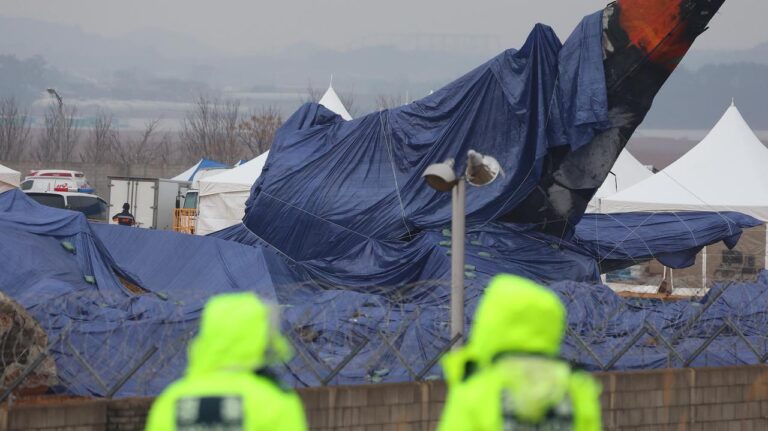Flight data and voice recorders in the cockpit of the Jeju Air plane that crashed at South Korea’s Mueang airport in late December stopped recording about four minutes before the plane crashed into a concrete structure, the country’s transport ministry said.
Jeju Air Boeing 737-800 crashed on December 29 last year at Muan Airport, killing 179 people out of 181 passengers. The crew attempted to land the aircraft on the fuselage without extending the landing gear, but this maneuver failed. The plane, which was traveling at high speed, skidded on the runway and then crashed into a concrete wall, according to one of the recordings. The car caught fire.
The plane’s flight data and cockpit voice recorders “stopped recording about four minutes before the plane hit the concrete structure,” the transport ministry said in a statement on Saturday.
As the ministry added, the authorities plan to investigate the natural disaster to analyze what caused the black boxes to stop recording data.
The Department of Transportation said the voice recording was initially analyzed in South Korea and sent to a US National Transportation Safety Board laboratory when it was found that the data was insufficient. A flight data log was also sent to the US for analysis.
Plane crash in South Korea
“A few feathers” in the engine
Lee Sung-jeol, head of the Air and Railway Accident Investigation Team, revealed at a briefing on Tuesday that “several feathers were found” from the crashed plane’s engine during an examination of soil and debris recovered. He added that the service is conducting tests to determine the type of bird and how the feathers got into the device.
A bird strike was initially considered the cause of the crash based on warnings from air traffic controllers and testimony from surviving crew members.
Main photo source: PAP/EPA/YONHAP

